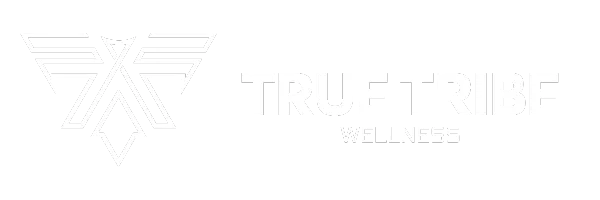OUR RECENT POSTS

The Role of Nutrition in Fitness: Fueling Your Body for Optimal Performance
Nutrition plays a critical role in fitness, acting as the fuel that powers your body through workouts and aids in recovery. Whether you're an athlete, a gym enthusiast, or just starting your fitness journey, understanding the connection between nutrition and performance can significantly impact your results. This blog post will delve into the importance of a balanced diet, the role of macronutrients, the significance of nutrient timing, and how to create a meal plan that supports your fitness goals.
The Importance of a Balanced Diet
A balanced diet is the foundation of good health and fitness. It ensures that your body gets the essential nutrients it needs to function correctly. These nutrients include carbohydrates, proteins, fats, vitamins, and minerals. Each plays a unique role in supporting your physical activities and overall well-being.
Carbohydrates: Often referred to as the body's primary energy source, carbohydrates are crucial for fueling workouts. They provide the energy needed for both high-intensity and endurance exercises. Complex carbohydrates like whole grains, fruits, and vegetables are preferred as they release energy slowly and keep you sustained for longer periods.
Proteins: Proteins are the building blocks of muscles. They aid in muscle repair and growth, especially after strenuous workouts. Including adequate protein in your diet helps in faster recovery and muscle development. Good sources of protein include lean meats, fish, eggs, dairy, legumes, and plant-based proteins.
Fats: Healthy fats are essential for hormone production, joint health, and energy. They also play a role in absorbing fat-soluble vitamins (A, D, E, and K). Incorporate sources of healthy fats like avocados, nuts, seeds, and olive oil into your diet.
The Role of Micronutrients
While macronutrients are the main players, micronutrients are equally important. Vitamins and minerals support various bodily functions, including energy production, immune function, and bone health. For instance, calcium and vitamin D are vital for bone strength, while iron is crucial for oxygen transport in the blood. A diet rich in fruits, vegetables, lean proteins, and whole grains usually provides the necessary vitamins and minerals.
Nutrient Timing: When to Eat for Optimal Performance
Nutrient timing refers to eating specific nutrients at particular times to maximize their benefits. Here are some key points to consider:
Pre-Workout Nutrition: Consuming a balanced meal with carbohydrates and protein 2-3 hours before a workout ensures you have enough energy. A snack rich in simple carbs about 30 minutes before exercising can provide an extra energy boost.
During Workout Nutrition: For workouts lasting longer than an hour, consider consuming easily digestible carbohydrates like sports drinks or energy gels to maintain energy levels.
Post-Workout Nutrition: The post-workout meal is crucial for recovery. Aim to eat within 30-60 minutes after exercising. A combination of protein and carbohydrates helps replenish glycogen stores and repair muscle tissue.
Creating a Meal Plan for Fitness
A well-structured meal plan tailored to your fitness goals can make a significant difference. Here are steps to help you create an effective plan:
Determine Your Goals: Whether you aim to build muscle, lose fat, or improve endurance, your nutrition plan should align with your specific goals.
Calculate Your Caloric Needs: Use an online calculator to estimate your daily caloric requirements based on your age, gender, weight, height, and activity level.
Balance Macronutrients: Divide your daily caloric intake into appropriate proportions of carbohydrates, proteins, and fats. For muscle building, a higher protein intake is necessary, while endurance athletes might require more carbohydrates.
Plan Your Meals: Distribute your caloric intake across 3-6 meals/snacks per day. Ensure each meal includes a balance of macronutrients and is rich in micronutrients.
Stay Hydrated: Hydration is often overlooked but is crucial for overall performance. Drink plenty of water throughout the day, and consider electrolyte-rich drinks during intense workouts.
Practical Tips for Eating Right
Choose Whole Foods: Opt for minimally processed foods like fruits, vegetables, whole grains, lean proteins, and healthy fats.
Avoid Sugary and Processed Foods: These can lead to energy crashes and provide little nutritional value.
Listen to Your Body: Pay attention to hunger and fullness cues. Eating when you're hungry and stopping when you're full can prevent overeating and aid in maintaining a healthy weight.
Prepare Ahead: Meal prepping can save time and ensure you always have healthy options available.
Proper nutrition is the cornerstone of any successful fitness plan. By fueling your body with the right nutrients at the right times, you can enhance your performance, speed up recovery, and achieve your fitness goals more effectively. Remember, a well-balanced diet tailored to your individual needs is key to unlocking your full potential in fitness.
For those looking to enhance their home workout experience, check out Warrior Shed. They offer a range of fitness tools that can help you stay active and reach your goals from the comfort of your home.
One or more of the links above are affiliate links, meaning, at no additional cost to you, we will earn a slight commission if you click through and make a purchase. Each of these products is chosen by a trusted member of our team.
Email: partnerships@truetribewellness.com
Social Media: @TrueTribeWellness

